Veli Küçük is a Brigadier General, a retired military personnel of the Turkish Military. His name was associated with various incidents in Turkey, especially in the 1990s, and it was claimed that he was the founder of the secret organisation JİTEM (known as a unit that allegedly operates within the Turkish Gendarmerie Organisation and has illegal activities)
Küçük took part in numerous protests with Kemal Kerinçsiz in defence of the cause of Turkishness. In one of these protests, Muzaffer Tekin, who was involved in the Council of State attack and accused of Ergenekon, was seen kissing Küçük’s hand.
Küçük was put on trial as a senior executive of Ergenekon. At the same time, his relations with Abdullah Çatlı, the ultra-nationalist mafioso who died in the Susurluk accident, and Alparslan Arslan, the perpetrator of the Council of State attack, were revealed.
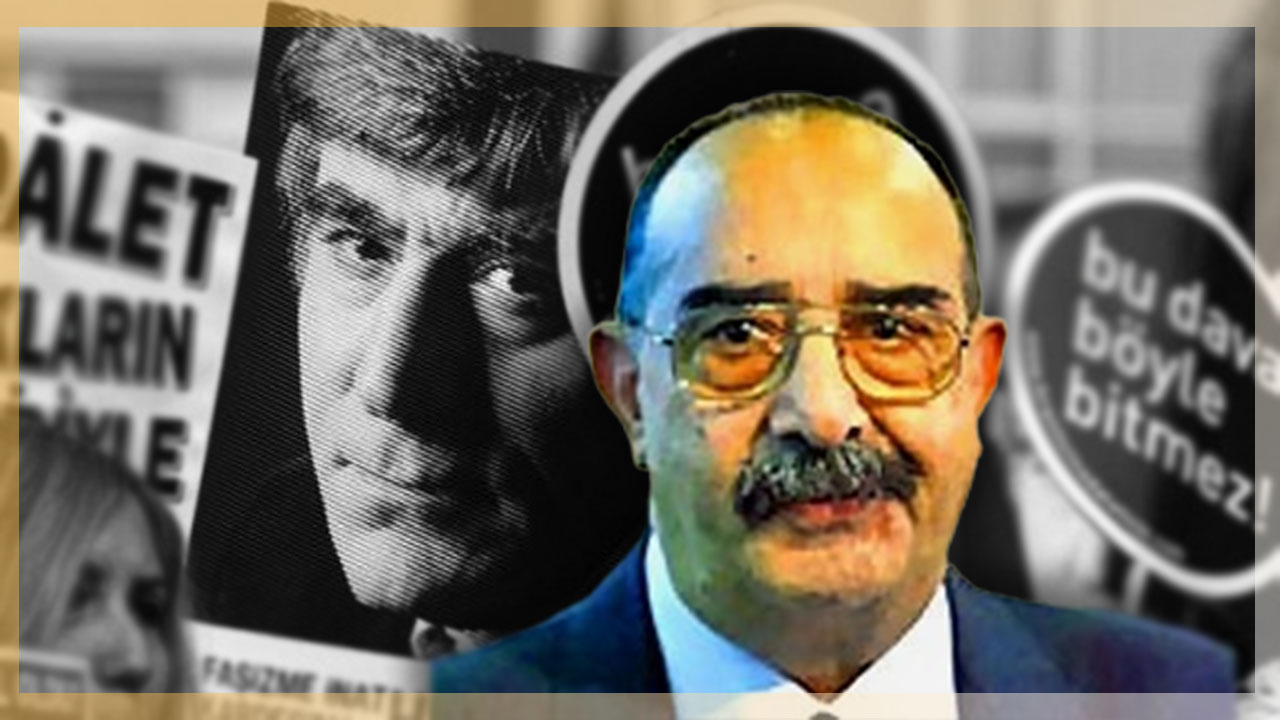
Veli Küçük
Targeting/threatening Dink
Veli Kucuk had petitioned to be an intervener in the “Attempt to influence the fair trial” case against three AGOS writers, including Dink, initiated upon the complaint of Kemal Kerinçsiz, but his request was rejected at the hearing held at the Şişli 2nd Criminal Court of First Instance on 16 May 2006.
Hrant Dink’s lawyer Erdal Doğan stated that Dink had been threatened by Veli Küçük several times by telephone and that he was more agitated by these threats than other threats. He was one of those who marched at the front of the protests against Hrant Dink after his trial for insulting Turkishness.
Veli Küçük, an ultra-Turkish nationalist whose name has been implicated in many secret illegal activities, was given a decision of non-prosecution by Prosecutor Gökalp Kökçü in 2015 without investigating his role in the murder of Hrant Dink.
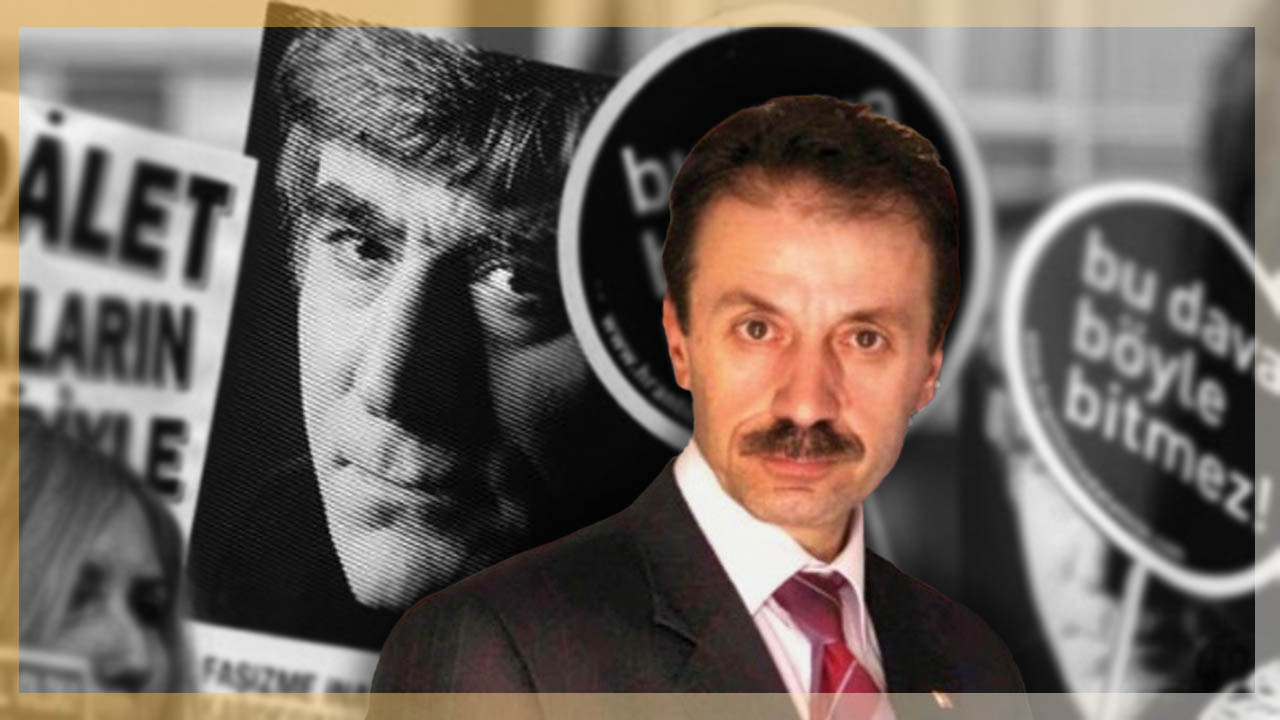
Kemal Kerinçsiz
Kemal Kerinçsiz is a Turkish lawyer and politician, known for his nationalist views. He has defended Turkish nationalism and has filed several lawsuits against many prominent individuals under Article 301 of the Turkish Penal Code, which criminalises “denigrating Turkishness”.
Oktay Yıldırım, Veli Küçük, Muzaffer Tekin, Mehmet Zekeriya Öztürk and other defendants in the Ergenekon trials joined the protests organised by Kerinçsiz against the writers. Kerinçsiz himself was tried in the Ergenekon trials and sentenced to aggravated life imprisonment. However, he was acquitted in 2016 after the case was overturned by the Court of Cassation after Erdoğan called the Ergenekon trials a conspiracy.
Targeting/threatening Dink
The conference titled “Ottoman Armenians in the Last Period of the Empire: Scientific Responsibility and Democracy”, which had been planned to take place at Boğaziçi University, was cancelled by a court order. It was Kemal Kerinçsiz who had the Boğaziçi conference cancelled and took part in the protests before and during the one in Dolapdere.
Following a press statement made by Hrant Dink, Kemal Kerinçsiz and his friends filed a complaint against him and Dink faced a new trial on charges of “influencing a fair trial”. There were protests, including attempts to physically attack Dink, outside one of the trials in which Dink was on trial.
Ali Fuat Yılmazer stated in his testimony that Kemal Kerinçsiz was found to have called the telephone numbers registered to the Gendarmerie General Command and the Istanbul Provincial Gendarmerie Command a total of 144 times on the days he attended the hearings of Dink’s trial for insulting Turkishness.
Prosecutor Gökalp Kökçü, who was assigned to the Dink case after the 17/25 December corruption operations, decided in 2015 that there was no grounds for prosecution against Kemal Kerinçsiz.
Levent Temiz is a Turkish lawyer and politician. He was the Istanbul Provincial President of Grey Wolves, a Turkish far-right paramilitary organisation associated with the Nationalist Movement Party.
At the ‘Either Independence or Death’ rally organised by the Istanbul Grey Wolves and the Workers’ Party in Taksim on 30 August 2003. Veli Küçük confessed in 2008 that he had ordered this rally.
Levent Temiz announced his candidacy against Nationalist Movement Party (MHP) leader Devlet Bahçeli and he was dismissed from the party. Then he joined the Patriotic Party and became Doğu Perinçek’s chief advisor.
It was revealed that Levent Temiz had 68 telephone conversations with Veli Küçük and 44 with Muzaffer Tekin, Ergenekon defendants who allegedly played a key role in the Council of State attack.
Levent Temiz was sentenced to 10 years imprisonment in the Ergenekon Trial.
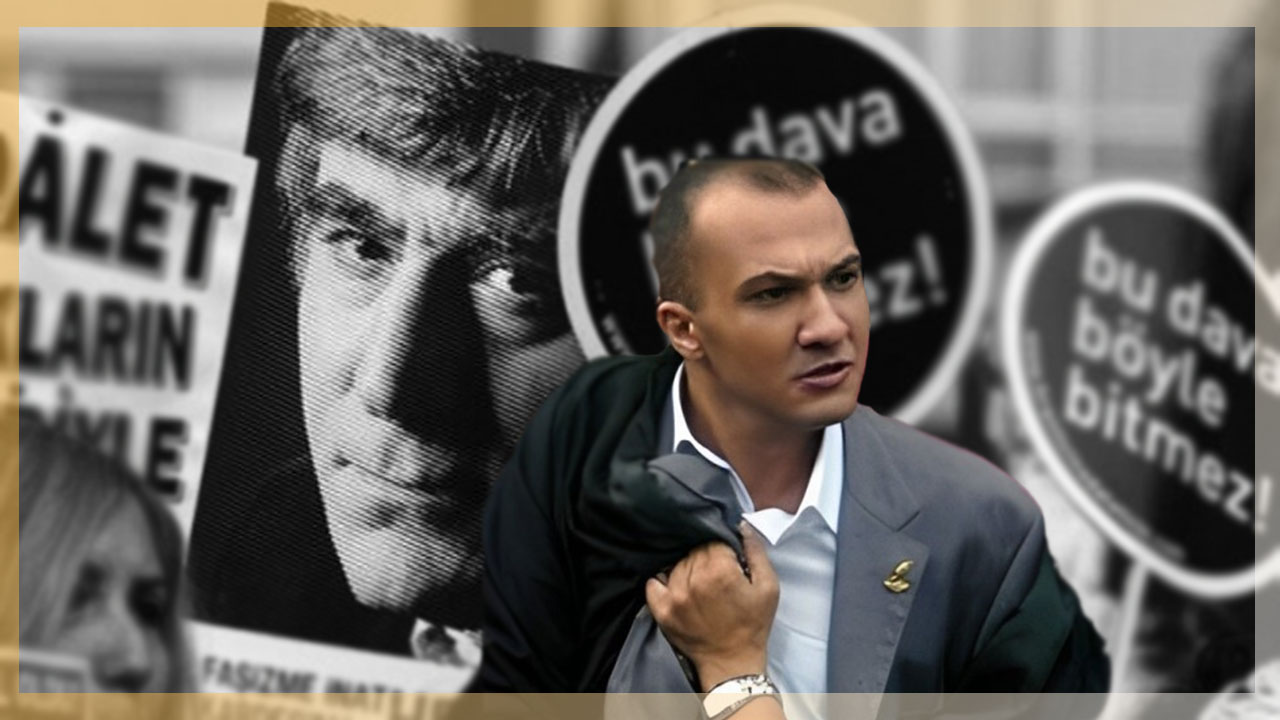
Levent Temiz
Targeting/threatening Dink
Levent Temiz organised a protest in front of the Agos newspaper on 26 February 2004. In the statement he made there, he said, “Hrant Dink is the target of all our anger and hatred from now on.” The group he was leading chanted threatening slogans such as “we can come one night unexpectedly”.
No action was taken against Levent Temiz for the Dink murder.
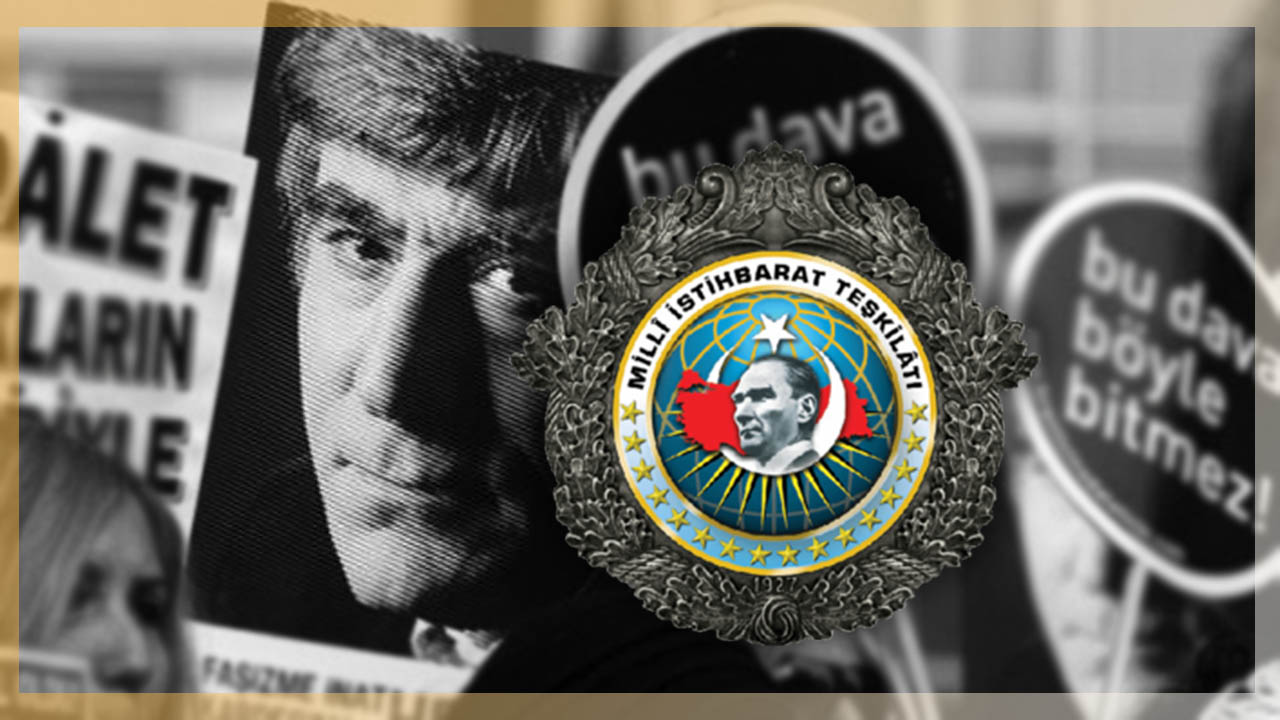
Özel Yılmaz
Özel Yılmaz is a former national intelligence organisation officer. He was detained within the scope of the “action plan against religious extremism” case. After Erdoğan’s statements that all Ergenekon trials were a conspiracy, he was acquitted from the trials. Before Dink’s murder, he was the deputy regional head of the National Intelligence Organisation in Istanbul.
Targeting/threatening Dink
On 24 February 2004, Hrant Dink was informed of the existence of “threats against him and Armenians” in a meeting held at the governorship of Istanbul. This meeting was conducted by Ergun Güngör, the deputy governor, and MIT officers Özel Yılmaz and Handan Selçuk. Özel Yılmaz told the deceased Dink to be careful, that there were people on the street who would misunderstand what he had written. In an article published before his death, Dink said that the meeting was intended to threaten him.
The Ankara Chief Public Prosecutor’s Office accepted the charges of ” negligence of duty” and “misconduct of public duty” against MIT officer Özel Yılmaz ; however, the charge of threatening Hrant Dink was discarded due to the “statute of limitations” and it was decided that there was no ground for prosecution against Yılmaz.
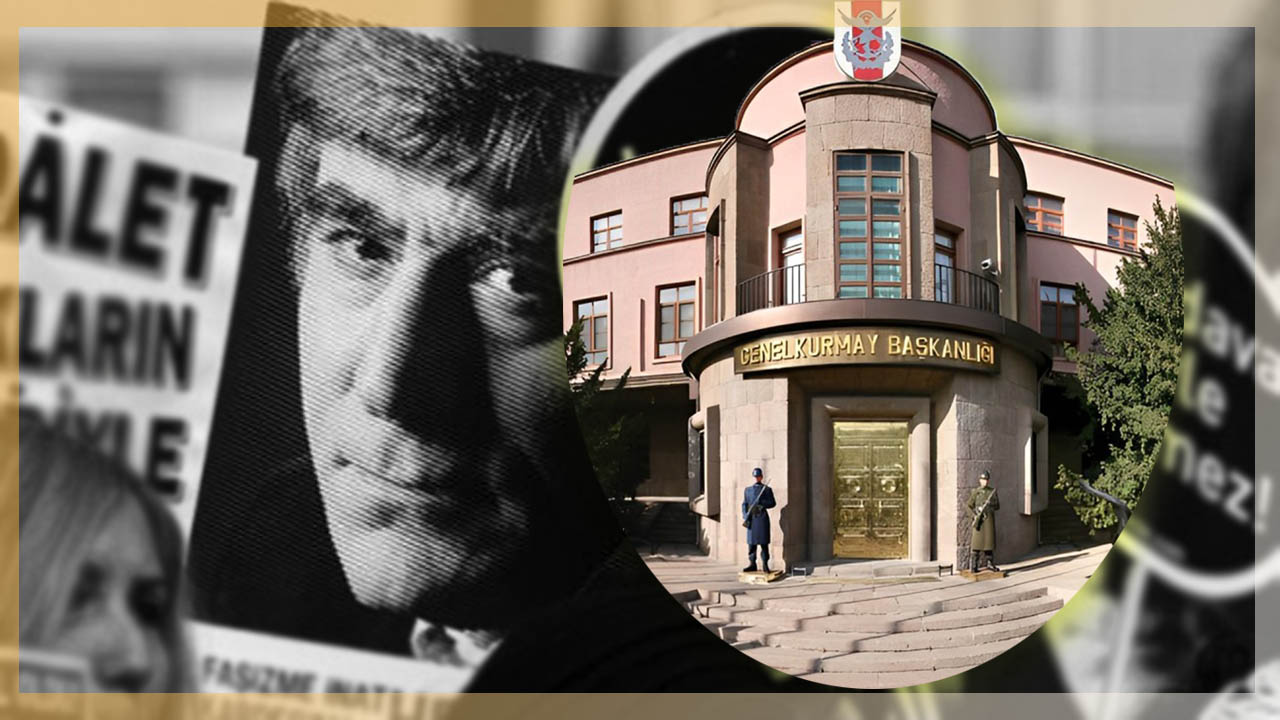
The General Staff
Following the article written by Hrant Dink about Sabiha Gökçen, the General Staff made a written statement and expressed their discomfort with the issue.
On 24 February 2004, it was claimed that a meeting with Hrant Dink at the Istanbul Governor’s Office was actually requested by the General Staff and its purpose was to learn the sources of the article on Sabiha Gökçen. This allegation was made in 2014 by Özel Yılmaz, Deputy Head of the Mit istanbul region.
Hürriyet played an important role in launching the campaign against Dink following a news item on whether Sabiha Gökçen was Armenian or not. This news was first published in Agos and then 15 days later in Hürriyet as a headline.
Although Hürriyet claimed that the article was written in a “very balanced and impartial language”, the atmosphere became tense with the fierce statements of the General Staff and the wide media coverage of the case.
Following the Hürriyet article, Dink became a target in the Turkish media and was criticised in various articles. Emin Çölaşan‘s article accused Dink of claiming that “the blood of Turks is poisonous”.
Hürriyet reported the General Staff’s statement without comment and failed to take a clearer stance against the campaign against Dink in the following period.
As the attacks against Dink increased, there was insufficient support from press professional organisations and the media. This situation left Dink defenceless and shaped the process that eventually led to his murder.
Hürriyet’s news approach and attitude in the process leading up to Dink’s murder stands out as an effective factor in the development of events.

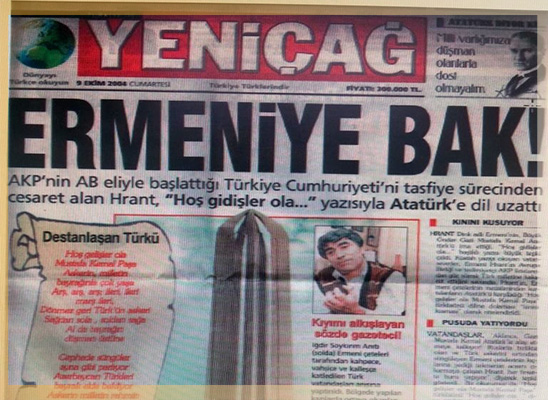
Dink was targeted one of the ultra-nationalist journal with the title "Look at the Armenian".

